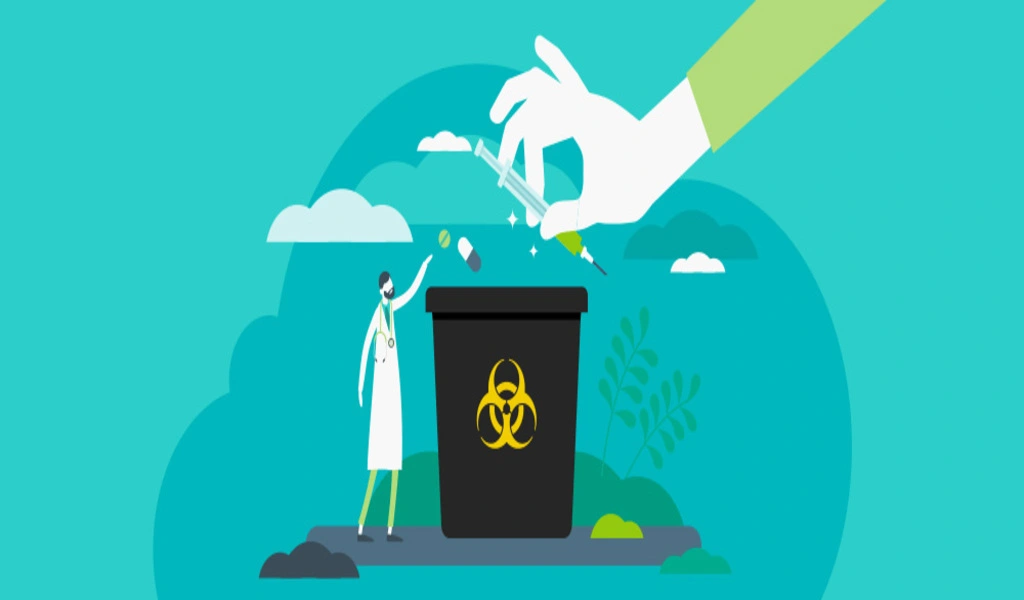Introduction
The proper disposal of medical waste is a critical aspect of maintaining public health and safeguarding the environment. Medical waste, also known as healthcare waste, is generated from healthcare facilities, research laboratories, and even households where medical treatments are administered.
This waste can pose significant health and environmental risks if not managed and disposed of correctly. In this article, we will delve into the importance of disposing of medical waste responsibly and explore the methods and regulations that guide its proper disposal.
The Significance of Proper Medical Waste Disposal
Medical waste comprises various items such as syringes, needles, surgical instruments, pharmaceuticals, and laboratory cultures, all of which can contain harmful pathogens, toxins, and chemicals. Improper dispose of medical waste can result in the spread of infections, exposure to hazardous substances, and contamination of soil and water sources. Therefore, the proper disposal of medical waste is crucial for preventing the following:
- Infections Spread: Medical waste often carries infectious agents such as bacteria, viruses, and other pathogens. If not disposed of properly, these pathogens can spread through direct contact or contaminated surfaces, leading to outbreaks of diseases.
- Environmental Contamination: The chemicals and substances present in medical waste can contaminate the environment, adversely affecting ecosystems and wildlife. For instance, improper disposal can lead to chemicals leaching into groundwater, contaminating soil, and potentially entering the food chain.
- Occupational Hazards: Healthcare workers and waste handlers are at risk of coming into contact with hazardous materials if medical waste is not managed correctly. Needlestick injuries and exposure to infectious agents are potential consequences of improper disposal.
Methods of Medical Waste Disposal
- Incineration: This method involves burning medical waste at high temperatures, effectively sterilizing it and reducing its volume. Incineration is effective in destroying pathogens and reducing the risk of infections. However, it emits air pollutants and greenhouse gases, raising environmental concerns.
- Autoclaving: Autoclaving, or steam sterilization, involves subjecting medical waste to high-pressure steam, effectively killing pathogens. This method is environmentally friendlier than incineration but requires proper management of the resulting waste.
- Chemical Treatment: Chemical treatment involves using disinfectants or chemical agents to neutralize pathogens in medical waste. This method is commonly used for items like sharps, but proper waste segregation is essential to prevent environmental pollution.
- Landfilling: Landfilling involves burying non-hazardous medical waste in designated landfills. However, this method is becoming less favored due to the potential for leachate and groundwater contamination.
Regulations and Guidelines
Governments and international organizations have established regulations and guidelines to ensure the safe disposal of medical waste. Examples include:
- World Health Organization (WHO): The WHO offers guidelines for the safe management of healthcare waste, emphasizing waste segregation, proper handling, and waste treatment.
- Environmental Protection Agencies (EPAs): Many countries have EPAs that regulate the proper disposal of medical waste to minimize environmental impact.
- Occupational Safety and Health Administration (OSHA): OSHA provides regulations to protect healthcare workers from the hazards associated with medical waste handling and disposal.
Conclusion
Proper disposal of medical waste is not only a legal and ethical responsibility but also a crucial step in preventing public health risks and safeguarding the environment. Implementing effective waste management practices, following regulations, and promoting awareness among healthcare professionals and the public are essential to mitigate the potential consequences of improper medical waste disposal. By treating medical waste as a serious concern, we can ensure a healthier future for both human populations and the planet.
SEE ALSO: 5 Website Maintenance Hacks To Ensure Uninterrupted Online Success
⚠ Article Disclaimer
The above article is sponsored content any opinions expressed in this article are those of the author and not necessarily reflect the views of CTN News






